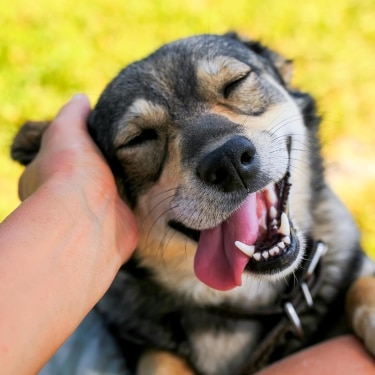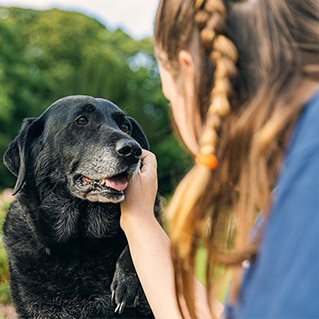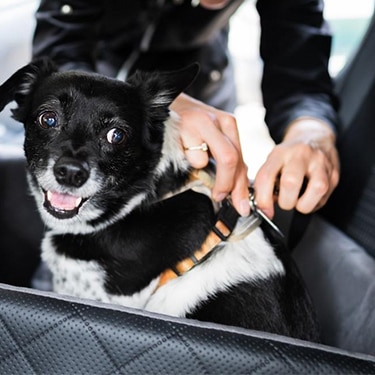Cross a bichon frise with a Cavalier King Charles spaniel, and you'll get a cavachon. There is no breed standard for the cavachon's temperament or appearance, but both the Cavalier and the bichon share a happy and affectionate
The most commonly used adjective to describe cavachons is "happy." Charming, fun-loving and friendly, these little dogs crave affection and attention and love to cuddle up in your lap. Although they tend to bark at strangers, they adore meeting new people and make friends quickly and easily.
Cavachons are fairly laid back as far as energy goes, although they do require about 30 minutes a day of exercise and activity, says Dogtime. While not overly adventurous, they tend to enjoy themselves wherever they are as long as they get to be with their people. These pups are highly social and don't like to be left alone.
Gentle and easy-going, cavachons tend to get along well with children and other pets, especially if socialized from a young age. Their keen intelligence and eagerness to please makes them easy to train. However, they tend to have short attention spans, so training sessions should be kept short, fun and positive in order to be effective.
Cavachons are best suited to living indoors and do well in homes with or without yards, making them a good choice for apartments, says WagWalking. Their non-shedding, hypoallergenic coats make them a good match for mild allergy sufferers, while their easy-going personalities, middle-of-the-road energy levels and high trainability make them great dogs for novice dog owners as well as for seniors.
While mixed-breed dogs tend to be less predisposed to breed-specific health conditions, cavachons, while generally hardy, may be prone to the same health issues that impact their parent breeds. These can include common small breed problems like patellar luxation, cataracts and atopic dermatitis, as well as more serious health concerns such as Cushing's disease, heart murmurs and mitral valve disease. Regular veterinary checkups are recommended to monitor for signs of these conditions, especially as the dogs get older. And as with many small breeds, cavachons are prone to oral health problems and require regular dental cleanings, as well as regular brushing and tooth maintenance.
Cavachons don't tolerate being left alone for long periods of time and are prone to separation anxiety. They do best in homes where someone will be home with them throughout the day. If necessary to leave them for long periods, it's best to crate them to prevent destructive behavior, and to start crate-training them and teaching them how to be alone from a very young age.
Try not to overfeed your cavachon. To help maintain a healthy weight, it's best to stick to a feeding schedule and give them measured amounts twice a day, rather than allowing them to graze from a kibble bowl throughout the day. Feed them a high-quality dog food for small breeds that's formulated to their age group and energy level, and be sure to factor treats into their overall daily caloric intake.
Most Cavachons have medium-length, non-shedding coats of tight, wavy hair, which are considered hypoallergenic. However, some Cavachons have longer coats that are less allergy-friendly. Their coat can be kept long and shaggy or in a puppy clip. Either way, they'll need to be brushed a few times a week to prevent tangles and matting. You should bathe your pup about once a month or as needed, although if your Cavachon suffers from skin allergies, more frequent bathing with a medicated shampoo might be necessary, per your vet's instructions.
As a cross-breed, it's likely that a few cavachons have existed unintentionally for about as long as both parent breeds have been around. However, a Virginia breeder claims credit for being the first to purposely cross a Cavalier with a bichon in 1996. The goal was to create a cute companion breed with a hypoallergenic coat and a lower propensity toward health issues. While the American Kennel Club doesn't recognize the Cavachon as a separate breed, cavachons are recognized by the American Canine Association by the alternate spelling Cavashon. Various national and international registries devoted to designer breeds, including the American Canine Hybrid Club and the International Designer Canine registry, also recognize the Cavachon as a designer breed.
Adopt a pet. Change a life.
Are you prepared to adopt a pet? Use these tools to make sure you are ready for the commitment.
Adopt a pet. Change a life.
Are you prepared to adopt a pet? Use these tools to make sure you are ready for the commitment.























